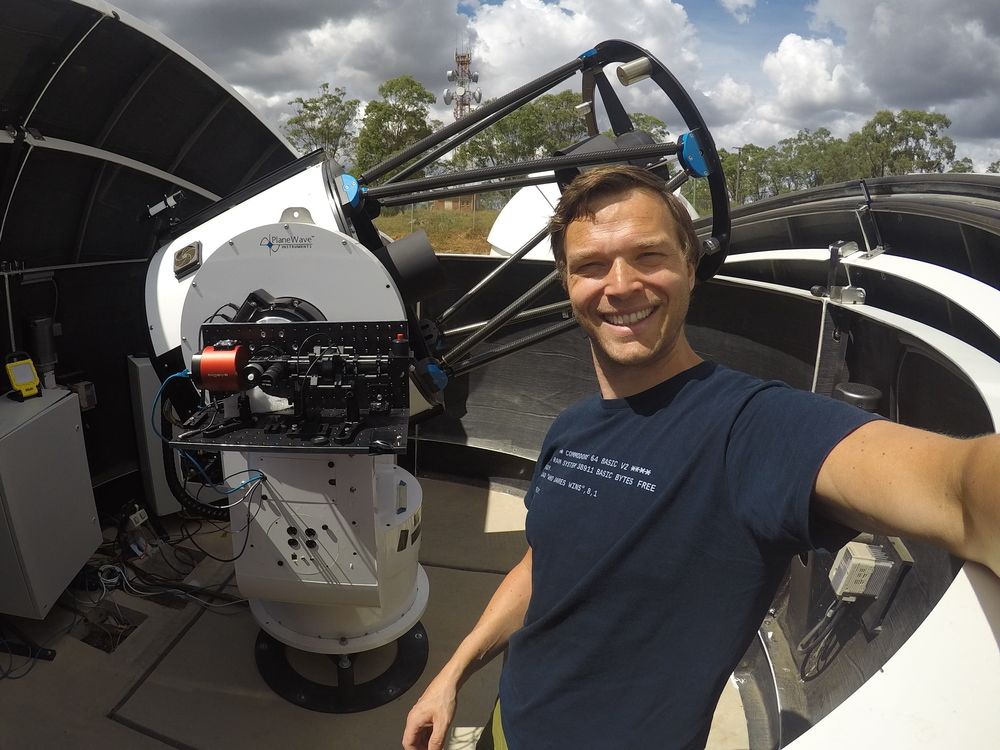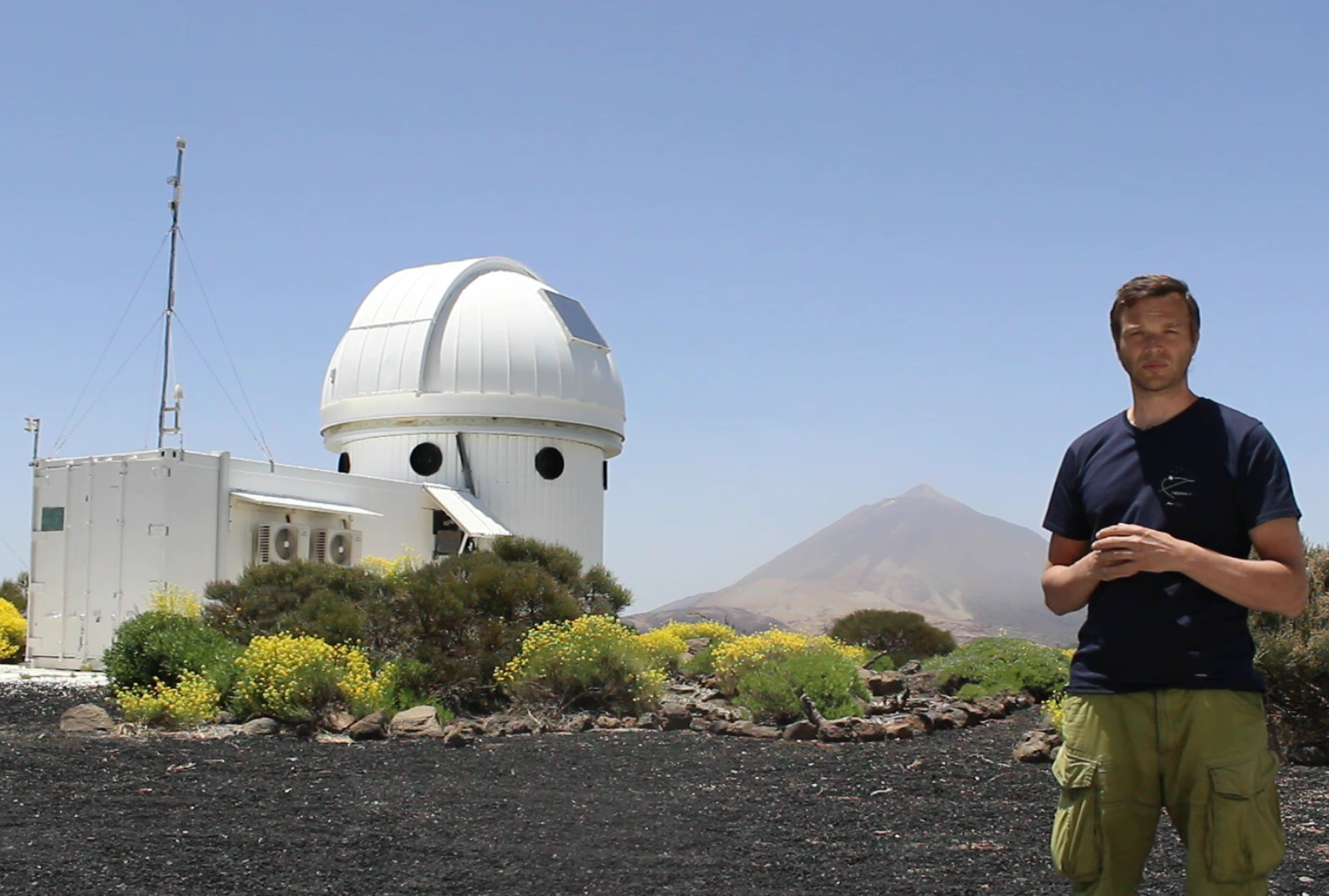Meet an employee at IFA
Monthly contribution from Mads Fredslund Andersen, Telescope and Satellite Manager


Briefly explain your path to IFA/AU. Where have you been before?
"I wrote my Master's thesis under the supervision of Søren Frandsen in Astronomy in 2008/2009 and when I was finished, Søren could use me for a bit of software development in the at that time newly established SONG project. Thereafter other tasks just naturally followed".
What was the basis for your choice of job?
Astronomy and space have always been of interest to me. So when this opportunity arose, I wanted to try it out, even though my first thought was to become an upper secondary school teacher.
What does a typical working day look like for you?
"As operations manager of the SONG project, with telescopes on Tenerife, in China, two in Australia and a future on the way in the US, a problem or operational task often arise which must be inspected. I also take care of the technical aspects of the remote-controlled instruction telescope (FUT), which stands alongside the SONG telescopes in Australia, so concering FUT., there is also a task or two that needs to be done. Some days, these tasks are quickly done, and other days it takes all day. When I'm not in meetings in relation to the many projects I'm involved in (SONG, FUT, DISCO, NOT, ORO, STEP), I work on the development of software for both hardware management, optimisation of observation procedures and development of automation and monitoring".
Mention three things that you appreciate about your work.
"1) I am very content with the variation that is in my work load. It is software and hardware development, installation with technical work, design, project management and much more.
2) Our telescopes are based on Tenerife, China, Australia, and there is one on the way in the US, and I love to travel, so it suits me very well. Tenerife has become my second home.
3) My working hours can vary enormously. For example tests on the SONG telescope on Tenerife are often carried out at night, and at other times it is just fits better within my private programme to work on odd times and that it is an option at AU, which I really appreciate."
What is the best thing about your job? And the worst?
"The best thing is that I work with something that I really like, namely exploration of space. My interest in space cover a wide field of areas. Everything from trying to understand the Sun and other stars better than we do today, to how the universe has evolved, how the Stars and planetary systems are formed and so on. I am also very interested in technological development and instrumentation in investigating these questions. That I can help us to learn more about what we see and better at performing the measurements, is one of the best things about my job. The worst thing is to be part of an environment (at least for astronomy), where the focus is to a high degree aimed at publishing articles and creating results. SONG, e.g. is not designed to deliver large volumes of articles annually. It is a long-term project aimed at answering questions that no one else can do, for example by: Observing individual stars for many years. I am also sad that the funding system is designed to (or contribute to) that funding should preferably be given to "new" projects/ideas or new equipment. My conviction is that all questions cannot be solved now and here. Some projects require a lifelong investment, that we may not even see the result of ourselves".
What is your most proud work achievement?
"I have (with a little help 🙂) created one of the most efficient robotic telescopes in the world – the SONG telescope on Tenerife. This observes every night, completely automatically when the weather permits without human intervention. With very little background knowledge, relatively quickly learning how to understand the control of Delphini-1 and how it orientate itself in space, to then be able to select areas to take photos of, this I am also a bit proud of. As far as I know, Delphini-1 is the CubeSat that has delivered some of the best images of the Earth from space to date."
What do you do in your spare time?
"I love creating and building things. Out in the garden i build sheds and, in general, the house and the garden are my playground. I make toys for my two children, garden tools, bows and other stuff in wood. When in season, I also like to catch sea trout on the beach and go hunting. If not, I have always played a lot of football and handball, but this is gradually becoming more of a couch or at the stadium thing where the local Aarhus team is backed up - Go go team!!"
